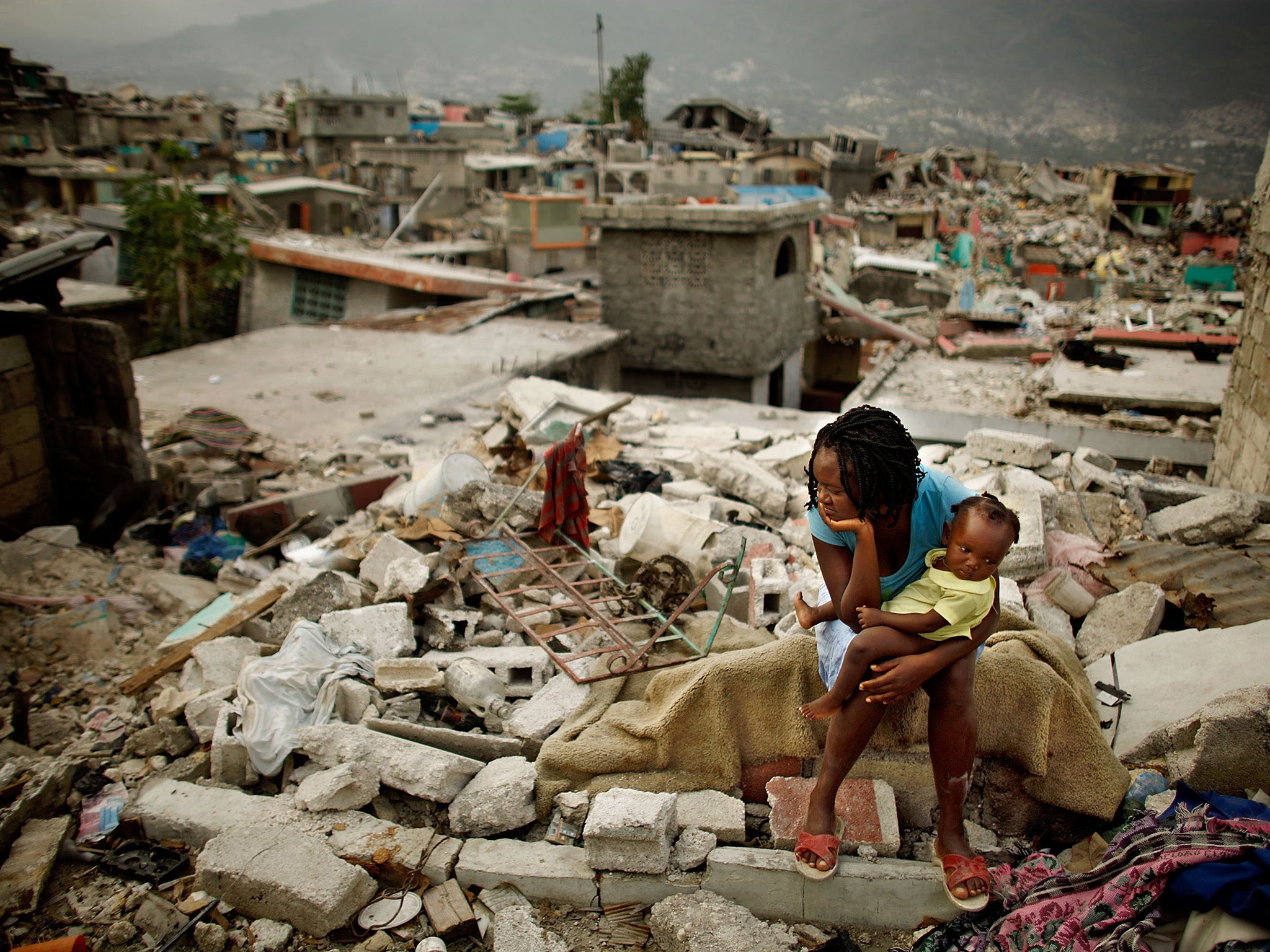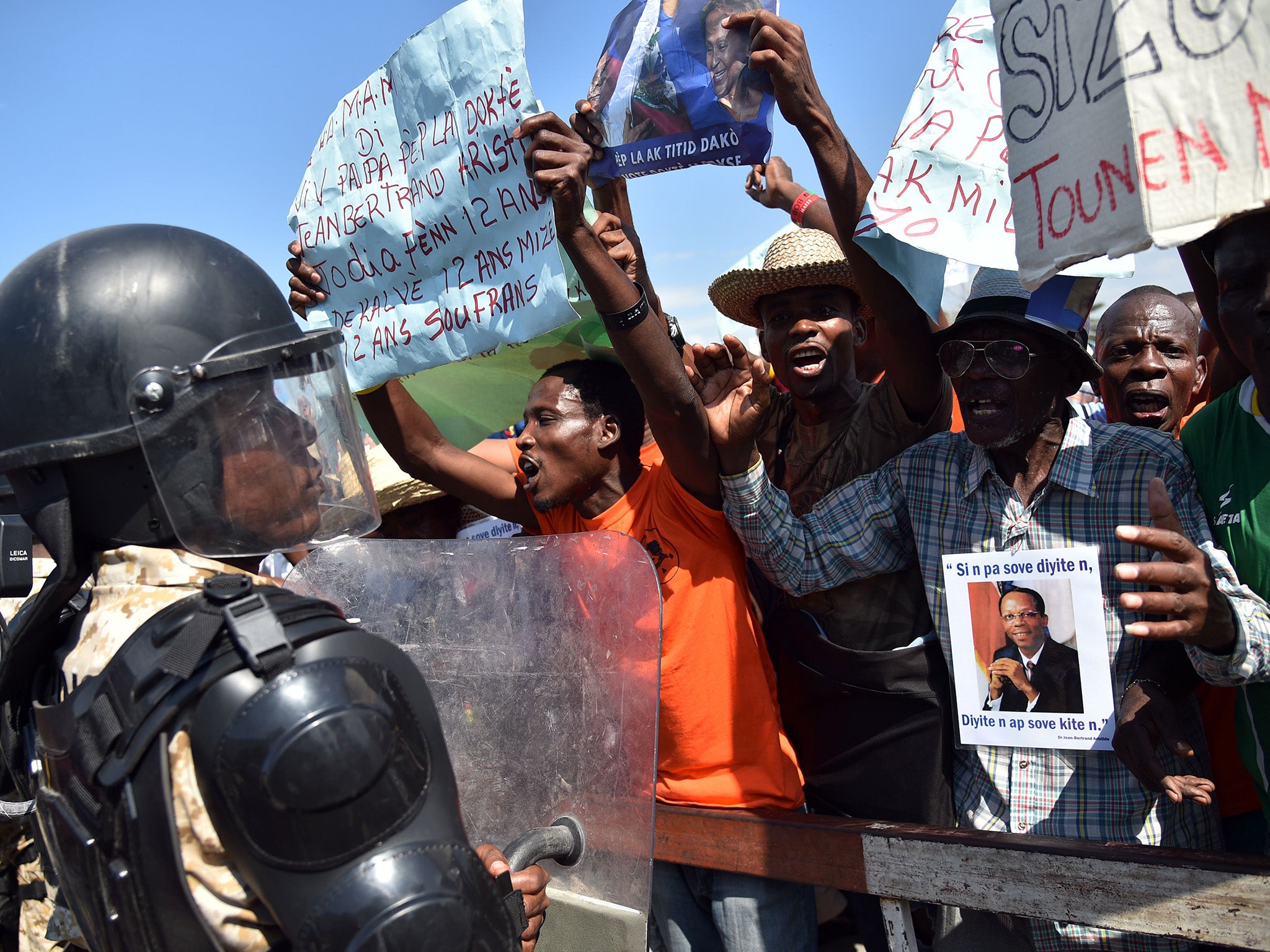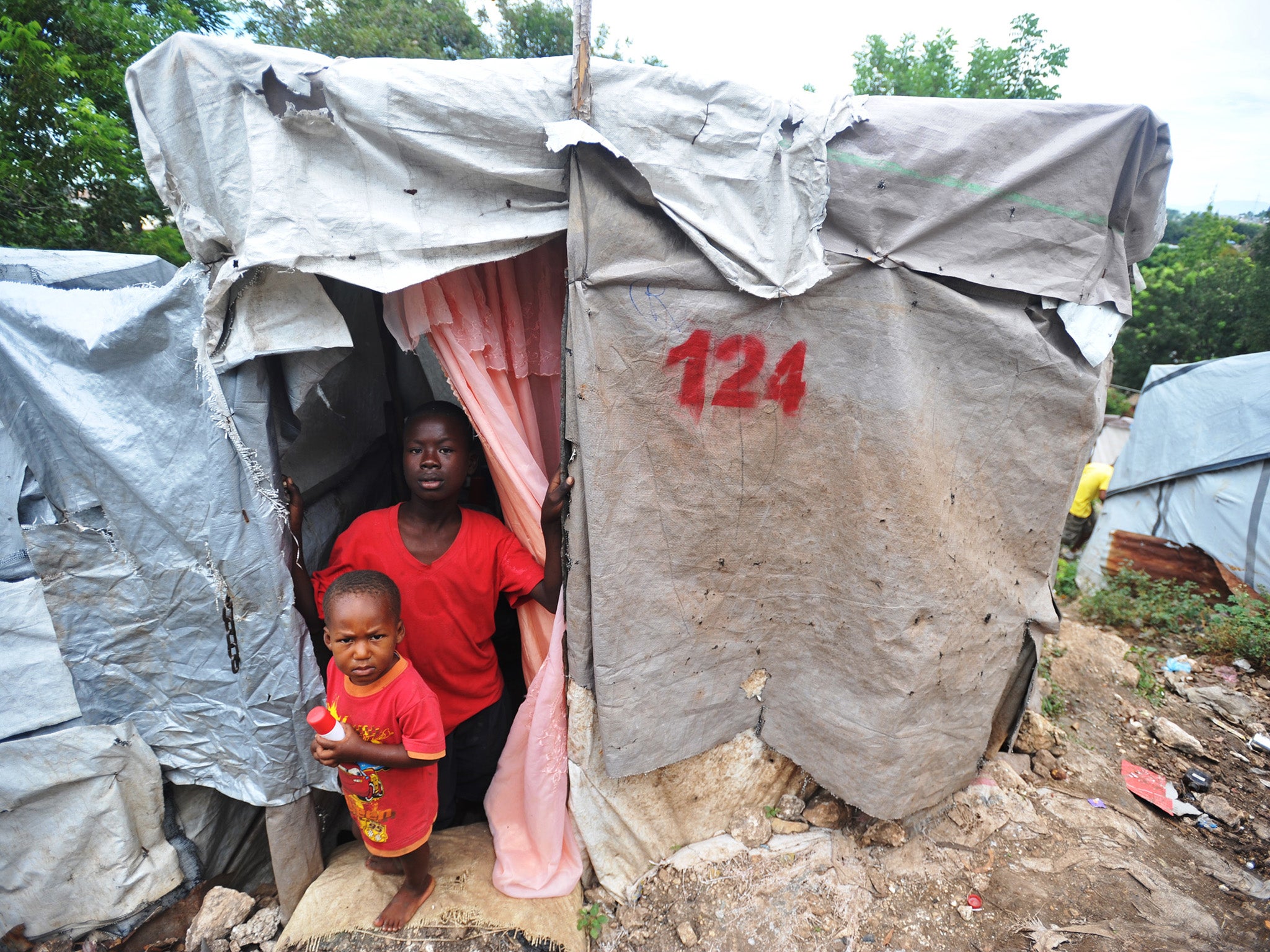Cholera in Haiti: Political crisis and poor sanitation mean thousands are dying unnecessarily in the Caribbean nation
An average of 37 people are dying each month from the preventable bacterial illness

Your support helps us to tell the story
From reproductive rights to climate change to Big Tech, The Independent is on the ground when the story is developing. Whether it's investigating the financials of Elon Musk's pro-Trump PAC or producing our latest documentary, 'The A Word', which shines a light on the American women fighting for reproductive rights, we know how important it is to parse out the facts from the messaging.
At such a critical moment in US history, we need reporters on the ground. Your donation allows us to keep sending journalists to speak to both sides of the story.
The Independent is trusted by Americans across the entire political spectrum. And unlike many other quality news outlets, we choose not to lock Americans out of our reporting and analysis with paywalls. We believe quality journalism should be available to everyone, paid for by those who can afford it.
Your support makes all the difference.An average of 37 people in Haiti are still dying from cholera every month, six years on from an earthquake which devastated the country’s capital Port au Prince.
At least 770,000 people have caught the disease since October 2010 and 9,200 have died.
The cholera outbreak began ten months after the quake, which killed between 100,000 and 300,000 people in January 2010, and is the first recorded incidence of the bacterial illness in the country for 150 years.
In 2016 alone 6,000 caught the water-borne infection, according to the latest government figures.
Cholera is a bacteria spread through unsafe drinking water which causes vomiting and diarrhea and can kill in hours if left untreated.
Public health experts say the spread of a preventable disease in the country has been exacerbated by world attention shifting onto more recent humanitarian crises such as Ebola and the Zika virus.
The country is also currently in the midst of a political crisis as the outgoing President, Michel Martelly, has stepped down without a successor following a botched run-off election.
World Health Organisation spokesman, Gregory Hartl, has said cholera is now considered “endemic” in Haiti. Experts say once it gains a foothold in a country it is hard to eradicate.
Dr Joseph Donald Francois, who co-ordinates the Haitian health ministry’s fight against the disease, believes the illness could be eradicated by 2022 but admits the project is seriously underfunded.

Haiti has only received $307m (£217m) - or less than 14 per cent - of the $2.2bn (£1.6bn) funding promised to it and neighbouring Dominican Republic in 2013 to eradicate the disease, according to a UN report from November last year.
In the first year following the outbreak, more than 200 international NGOs were providing money and expertise to help, but now there are fewer than a dozen, Dr Francois said.
He said: “Having far fewer deaths has led a lot of people to believe the situation is no longer urgent.
“But if we had the resources, people wouldn’t be dying at all.”
The Secretary General of the United Nations, Ban Ki-Moon, has been criticised by his own human rights experts who say he is violating the rights of the Haitian people by refusing to consider evidence that UN troops brought the disease to Haiti during the earthquake from an infected area in Nepal.
It is believed to be the first time the UN’s own human rights experts have attacked the organisation’s hierarchy itself for causing a problem rather than an individual country.
The five special rapporteurs wrote a letter to the Secretary General saying his attitude “undermines the reputation of the United Nations” and “calls into question the ethical framework within which its peace-keeping forces operate”.

The earthquake devastated much of the infrastructure in Haiti - which suffered under a brutal dictatorship by the Duvalier family from 1957 to 1986 - though it has slowly begun recovering.
According to Amnesty International, there are still 60,000 people living in makeshift displacement camps after their homes were destroyed in the earthquake where sanitation is poor.
Only 24 per cent of Haitians have access to a toilet, sewage is rarely treated correctly and many do not have access to safe drinking water.
Additional reporting by AP
Join our commenting forum
Join thought-provoking conversations, follow other Independent readers and see their replies
Comments